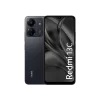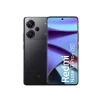I might be preaching to the choir here but it has to be said for those who aren’t familiar with the financial gymnastics that are happening between the Zambezi and Limpopo.
Zimbabweans living abroad come home periodically, this might be graduates who have finished their studies, those on the end of academic year break or ex-pats coming for the holidays. Whatever the case might be, if you haven’t opened a local currency account you should seriously consider it because the forex you are coming back with is a precious commodity. There is the temptation to flex those greenbacks, Mandelas or Her Majesty’s Pound Sterling but the multicurrency situation in Zimbabwe is a minefield that you’ll have to navigate to get bang for your buck
Now I know the ZWL$ is a bit of a meme but the local currency is important for two reasons. The first is change, it is very difficult to get small denominations of the USD even up to the US$5 note. So if you don’t want to hunt for change having ZWL$ is a fantastic makeweight. The second is that some goods and services are cheaper in local currency depending on the exchange rate.
I am not saying find your friendly neighbourhood money changer, but if you can find a way to fund a local currency account, you can get the best value for whatever it is you want to buy. And if you are worried about the account opening process then you’ll be happy to hear that it has gotten a whole lot easier to open one… Here’s how you get started.
The sim card or carrier you choose determines your options
Getting a sim card, if you don’t already have one, is the first big decision you’ll have to make because they aren’t all equally kitted out. Econet, for example, offers data-free or zero-rated access to some bank apps and websites like Techzim. However, all of them offer you financial services at the point of application by the way of EcoCash (Econet), Telecash (Telecel) and OneMoney (NetOne).
In essence, they allow you to transact because when you get a line you will also get a mobile money wallet. These accounts are really good because you can immediately buy airtime and pay for goods and services as long as the account is funded. Additionally, you can link them to your local currency bank account when you’ve opened one.
In saying all of this you’ll need to be aware that EcoCash is the biggest mobile money operator with a vast array of services like insurance, microloans with its sister company Steward Bank and much more. But they charge the most out of the three operators, so if you are worried about the transaction fees and want to forgo other services you might want to try out OneMoney (NetOne) or Telecash (Telecel).
On that note, OneMoney is the closest to EcoCash in terms of the plethora of services it offers, NetOne’s mobile money arm recently launched a remittance service called OneRemit that allows its subscribers to send money from City to City through its *111# USSD. OneMoney also has a 10% discount for NetOne airtime.
All of that aside, mobile money, regardless of the operator, has a transaction limit that stands at ZWL$20,000 per transaction which isn’t bad but could be better.
You can open a bank account at the airport or border, no branch needed
Mobile phones have become an even more powerful tool for financial inclusion in the last year or so when it comes to traditional financial services. Banks scrambled to catch up to mobile money in terms of ease of opening an account during the height of the pandemic. Before 2020, you’d need to make your way to a bank branch with papers to open a lite account or a full KYC account.
Thankfully, the demand for online and mobile phone-based services forced them to reassess their position and make it possible to open bank accounts (which aren’t as limited as mobile money) via USSD and their individual Bank apps. So if your line has been registered, working and if you are a Zimbabwean citizen then you can apply for an account while in transit home.
NMB Bank, FBC Bank, Nedbank, Steward Bank, BancABC all allow you to open an account through their USSDs as well as bank mobile applications:
| Bank | Account Types | USSD | Bank App download links |
| NMB | Lite Account -you can upgrade to a full KYC local currency or NOSTRO with the NMB Connect App | *241# | –iOS –Android (Data free access on Econet) |
| FBC | Full Account | *220# | –iOS –Android (Data free access on Econet) |
| Nedbank | Full Account | *299# | –iOS –Android (Data free access on Econet) |
| Steward Bank | Lite Account | *236# | –Android (Data free access on Econet) |
| BancABC | Lite Account | *242# | –iOS –Android (Data free access on Econet) |
These USSDs work on all networks so whichever line you pick you’ll be able to open a lite account at least. In saying that, depending on where you were, USSDs might be a bit of a foreign concept because in the “wider world” mobile applications rule the day due to the relatively favourable data prices and packages elsewhere. If you are one of these individuals and Zimbabwe’s data prices are a concern then you’ll need to go with Econet because, as previously mentioned, it offers data-free access for some bank apps. At the time of writing this article, NetOne and Telecel are reportedly working on offering the same for their subscribers.
Collecting your card
Once you have opened your account either via USSD or the mobile app, you will be given instructions on where you need to collect your card. If you are unsatisfied with the transaction restrictions of lite accounts (about ZWL$100,000 a month for ZIPIT) then you’ll need to apply for a full KYC account at your bank of choice.
Or you can go with FBC or NMB, they allow you to upload your KYC documents like ID and the likes in their mobile apps. CBZ is another alternative because you can apply for an account via email.
All in all, the banks deserve praise for the way they have manoeuvred to make account opening easier for Zimbabweans.





3 comments
They can only use electronic payments as banks seldom have local currency to give out as a withdrawal. After 3 or 4 days they will realize that there are lots of places where buying with the foreign notes will be at an advantage.
Thanks guys for sharing. This information is extremely useful
Thank you very much for this information we appreciate.